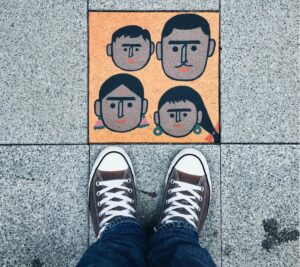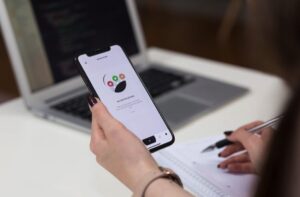What Should 21st Century leaders do?
by Elias Moses and Ponnappa
The unpredictability of life is the only thing that we can be certain of, with Covid-19.
The World has changed, so too We. The goal posts have made their shift. Our paradigms and work-focus from locked down situations are a frustrating and disorienting experience.
Lots of people are loosing out on their patience on account of not being able to get back to what they were once doing.
A veteran entrepreneur told me that “Man always coped with challenges and changes, the times had brought in the past. So the present pandemic should not deter our spirits and minds. The only thing required is a new set of skill and knowledge to combat the change of time, which has posted a threat to the existence of our humanity.”
Many great thinkers in management observe that being confident and comfortable with constant change is an increasingly valuable characteristic to the leaders in the 21st Century.
New challenges Require New Skills
In a landscape of shifting global challenges in the economic, socio and political sectors, what else is new in the portfolio of qualities, knowledge and skills that can be valuable for leaders, as we look towards traveling through the ever-evolving-21-century?
What is increasingly clear is that organisations/companies are facing a range of new kinds of challenges and opportunities that were just not on the agenda a couple of decades ago.
 What we fail to realise most of the time is this, “While the challenges posed by the Pandemic Covid-19 are in plenty, the opportunities are also in plenty. While we scrabble through the existing challenges, we are also exceedingly becoming incompetent in tapping the existing opportunities”
What we fail to realise most of the time is this, “While the challenges posed by the Pandemic Covid-19 are in plenty, the opportunities are also in plenty. While we scrabble through the existing challenges, we are also exceedingly becoming incompetent in tapping the existing opportunities”
Let us not forget that these new kinds of challenges brought in by Covid-19 really pose a huge threat to sheer existence of our organisational system on the whole, if not seriously looked into.
In my view, management education has a key role to play. New skills are required, new understanding is needed. We need leaders with a much broader set of capabilities.”
As recorded by European Academy for Business in Society (EABIS) for the United Nations Principles of Responsible Management Education (PRME), we need 76% of leaders with skill and knowledge to deal with complexity of our times, while have only 8% of leaders equipped for it.
What do we do here? How do we build agglomeration of knowledge and skills?
This agglomeration of knowledge and skill must be based on context, complexity and connectedness.
A. 21st Century Leaders respond to Context
The grit of leadership is realised in the context. The world’s leaders and business stalwarts would not have become leaders of the day, if they had not responded to the context of their times and their demands.
Leaders of tomorrow need to understand the changing world scenario context. We need to understand the risks and opportunities of social, political, cultural and environmental trends, Covid-19 has brought in our midst.
And leaders need to know is how people respond to these trends and the skill to deal with them. Leaders must be able to integrate social and environmental trends into strategic decision-making.
It is an irony to see that our leaders are not thinking contextually to respond to the political and economic trends and challenges of our times.
B. 21st Century Leaders address Complexity
True Leadership is the ability to lead in the face of complexity and ambiguity. The challenges and opportunities, the pandemic issues and trends present, tend to be complex by definition.
Today, and increasingly in the future, we need people with an innate and profound understanding of life’s social, political, religious and environmental impacts and potential… to deal with complexity of our times.
Changes are hitting people in difficult and diversified ways, Leadership in these circumstances requires a range of discrete skills and knowledge
What is causing humanity is not merely uncertainty but anxiety of the future.
What is unique about the complexity is the tendency of ‘flight and affiliation’ response that exists among workforce. While on one hand, people want to take a flight approach to save life, while on the other hand, they want to affiliate to keep the economy moving. This complexity is a result of the pandemic. But the complexity, that this dichotomy has brought to life and its situation, requires a different leadership skill to deal with, which only the technology driven leadership can solve.
It is important for the leaders to listen more to the employees in companies to understand the complexity of life situations and their demands, and come out with apt solutions, as per situation.
C. 21st Century Leaders are Connected
 Connectedness is the ability to understand the actors in the wider world’s landscape, to engage and build effective relationships with new kinds of external partners.
Connectedness is the ability to understand the actors in the wider world’s landscape, to engage and build effective relationships with new kinds of external partners.
Connectedness is the only way to rebuild life and economy. With world organisations loosing their existential relevance, it is important for leaders to rebuild connectivity between diverse sectors, businesses, organisations and nations.
The mindset with which our current leaders are groomed does not encourage productive engagement with partners and leaders outside the organization.
Leaders today need to receive plenty of training in negotiation skills, for example, but on the whole, lack the skills for engaging in effective dialogue and network.
A need for diverse and impact learning approaches
If these are the kinds of knowledge and skills needed, how can they best be developed?
Again, the research makes it clear that traditional approaches are not enough. A broad range of learning approaches are required to develop the global leaders of tomorrow.
Because the issues are complex, the leaders must adapt to technology driven learning and role based skill development learning blended with real experience, whether the learning is on-the-job, off-the-job, virtual, project-based or experiential.
Learning through direct experience and engaging with people in diverse networks can be particularly valuable. Such a format must continue through virtual and augmented platforms.
Leaders make leaders. This forced life situation must ensure that leader need to coach more leaders through virtual mentoring, formal or informal learning networks or learning management systems that are easily available. Getting this right requires clever and innovative design in learning programmes.
If we are aspiring leaders, let ask ourselves which qualities and skills we think are important to develop in ourselves for the future, and look for a broad range of different learning opportunities to take this forward. The world does not go backward for sure. We do need new kinds of skills and capabilities to serve the world of our times and build a bright future for our humanity.
About the Writers
Elias Moses is a Senior Business Strategist, Researcher, Corporate and Leadership Trainer, Orator, Columnist and an Entrepreneur. He is also the Founder and Managing Director of a growing reality firm in south India. The author can be contacted@
email: elias@manovsis.com, linkedin: www.linkedin.com/in/eliasmoses
Ponnappa is a Charted Accountant with 19 years of Professional Experience in op. restructuring. Taxation, Acquisitions, Divestments, Capital restructuring, Pricing, SCM. He is a CFO of a Company of great repute in India
